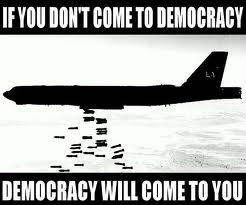| The blog post to end this quarter. Sorry for the pixel blood if you're squeamish :P |
It’s been two months
since I’ve came to UCI and starting studying Hum Core. To be honest at first I
was scared to death. I’d heard rumors of how terrifying the course was. The
essays were super hard, there was so much to read, and many people couldn’t
keep up and just dropped the course…All these stories came together to create
an image of a huge monster that would ruin my freshman year. Of course, I’ve
heard a few good stories, from people who said that the materials were very
interesting, the TA’s were nice and helpful…These stories gave me strength to
not drop out of the class right away. And they were true. I am honestly really
happy that I stayed in the class. I’ve learned a lot in the short two months
I’ve been here, and thought about questions that opened my eyes to the depth of
the world. I originally thought Hum Core would just have generally discussions
of different wars and do boring analyses. But we’ve talked about human agency,
about different wars and how literature artifactualizes war, and how war is
presented to us in different forms and different points of view…
| Different point of views affect the way we treat certain situations. |
The greatest change that
has happened to me since I’ve taken Hum Core is definitely my knowledge of how
war is presented to us. Before this class, I’ve learned about war only through
textbooks, and I learn about them only so I could pass quizzes and exams. I
never really stopped and wondered, how can I entirely trust these sources? The
history in these textbooks only talk about general events, but what about the
common people? How were their lives different and how were they affected? I’ve
definitely learned more about war through knowing that there is “history from
below”, since it seems more realistic and relatable. And through these lens, I
can actually understand the terror of war, instead of just attempting to
understand it through lifeless numbers.
Overall, I am definitely
looking forward to the next quarter of Hum Core, so I can learn even more about
war throughout history. I believe through learning about war, we can better
prevent it from happening, and also better help those already affected by it.
Works Cited
First image Chun Li vs Johnny Cage by Jenn Dolari http://www.dolari.org/sfjenn/
Second image belongs to Frits Ahlefeldt http://hikingartist.com/
Smith, John H. "Reading (Hi)story." University of California, Irvine. 21 Oct 2015


